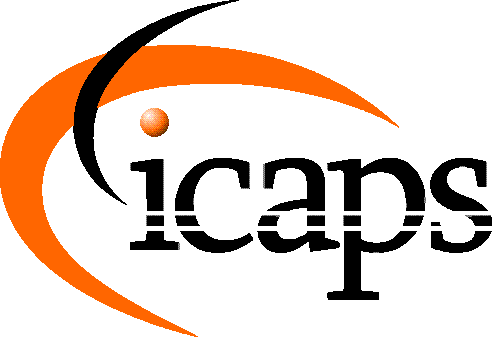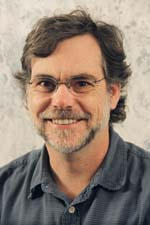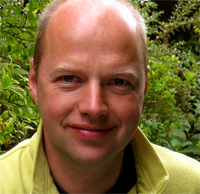

19th International Conference on
Automated Planning and Scheduling
September 19-23, 2009, Thessaloniki, Greece
https://icaps09.icaps-conference.org
Program
Schedule has been announced
Invited Speakers
The program will include invited talks from the following researchers:
- Maria Fox, University of Strathclyde, UK
- Stephen F. Smith, Carnegie Mellon University
- Sebastian Thrun, Stanford University
Planning with Continuous Change
by
Maria Fox,
European Coordinating Committee for Artificial
Intelligence (ECCAI)
Invited Speaker
 |
Abstract. Continuous change occurs in almost all interesting real problems, including oil refinery management, logistics planning, mission planning for autonomous vehicles, experiment design, financial planning and energy demand and supply management. Most research communities that are concerned with action and change: the qualitative reasoning, formal verification, controls, optimisation and knowledge representation communities - also recognise the importance of continuous processes and their impact on predicting and controlling dynamic systems. In the planning community the problem of reasoning about continuous change and its implications has been explored in autonomous vehicle mission-planning using hybrid model-based reasoning and stochastic and hierarchical modelling, and in process plant management using non-linear constraint modelling. However, despite the development of planning domain modelling languages, such as PDDL+ and Opt, domains featuring autonomous processes and exogenous events have not yet been developed as benchmarks for domain-independent planning. The speaker will present some features of planning problems that distinguish them from typical problems in optimisation and control and discuss progress and open problems in planning with continuous change. |
Short bio. Maria Fox is Professor of Computer Science at the University of Strathclyde. Her research includes contributions to planning domain modelling and automated static domain analysis, domain modelling languages and their formal semantics, planning for temporal and metric domains, continuous planning, plan validation and plan execution monitoring. She co-developed PDDL2.1, the temporal and metric version of PDDL, and was a co-organiser of the 3rd IPC which precipitated many new developments in temporal planning. She is an Associate Editor of Artificial Intelligence and a member of the advisory board of JAIR, having served over several years as both an editorial board member and an Associate Editor. She has also served on the programme committees of many conferences including ICAPS and IJCAI, both in PC member and Area Chair capacity and she co-chaired ICAPS-07. She has helped to build an internationally known planning group at Strathclyde, where she has also been Department Head since 2007.
Scheduling in Dynamic, Uncertain Environments: Closing the Loop with Execution
by Stephen F. Smith
 |
Abstract. Advances in sensing and web technologies now provide unprecedented ability to obtain and maintain up-to-date, real-time information on the location and status of materials and resources over time. In application areas as diverse as transportation planning, supply network management, disaster response and traffic control, it is now truly possible to base planning and scheduling decisions on actual execution state. The perceived benefit of this approach, largely unrealized at this point, is that it offers the possibility to better cope with the uncertainty inherent in large-scale, multi-agent execution environments, leading to more responsive and ultimately more effective organizational performance. This talk considers the prospects for a new class of execution-driven scheduling models. These models start from the premise that scheduling is a dynamic optimization under uncertainty problem, where new goals arrive continuously and must be weighed against current commitments, where the constraints associated with scheduled activities are uncertain, and where the resources required to execute activities are unreliable. Execution-driven scheduling models must also deal with the communication and coordination constraints of multiple executing agents, which frequently force or encourage distribution of problem solving effort. I will summarize threads of ongoing research in building robust schedules, managing change in dynamic over-subscribed domains, learning and exploiting models of uncertain scheduling constraints, and coordinating distributed scheduling agents; all of which contribute directly to the realization of execution-driven scheduling models. I’ll attempt to characterize where the field stands with respect to this overarching goal, and what principal challenges remain. |
Short Bio. Stephen Smith is a Research Professor in the Robotics Institute at Carnegie Mellon University, where he heads the Intelligent Coordination and Logistics Laboratory. His research focuses broadly on the theory and practice of next-generation technologies for complex planning, scheduling and coordination problems. He pioneered the development and use of constraint-based search models and heuristics for solving scheduling problems, and he has led the development of innovative planning and scheduling systems for a number of complex applications. He has published over 215 technical articles on these subjects. He is Associate Editor of the Journal of Scheduling, was a founding member of the ICAPS executive council (2002-2008), and currently serves on the executive council of the International Society of Interdisciplinary Scheduling. In 2005, he received the Allen Newell Medal for Research Excellence, awarded annually by the CMU School of Computer Science. In 2007, he was elected a Fellow of AAAI.
Towards Self-Driving Cars
by Sebastian Thrun

|
Abstract. Cars kill over a million people every year. The speaker will report on progress to make cars safer, more convenient, and more efficient (gas, space, utilization), through robotic technology. Building on AI advances that led the Stanford Racing Team to victory in the DARPA Grand Challenge and second place finish in the Urban Challenge, Stanford has developed advanced mapping, localization, car tracking, control, and planning methods, which enable cars to navigate in dense urban and highway environments. The speaker will survey the latest research in this area, and speculate about possible ways to get this technology into every car. |
Short bio. Sebastian Thrun is a professor of computer science and electrical engineering at Stanford, where he directs the Stanford AI Lab. Thrun has published 11 books, over 300 scientific articles. Thrun is probably best known for his pioneering work on probabilistic robotics, and the victory of his team in the DARPA Grand Challenge. Thrun is a fellow of the AAAI, ECCAI, WTN, and member of the National Academy of Engineering and the German Academy of Sciences. Popular Science included Thrun in their "Brilliant Ten", Fobes Magazine as one of seven "E-Gang" members, Scientific American in their list of 50 world technology and policy leaders, and Wired awarded Thrun's robot Stanley the top spot in the most influential robots of all times. Thrun also serves as a Principal Engineer at Google where he was instrumental in the creation of Street View. Finally, he is a senior advisor to Charles River Ventures, an early stage venture capital firm.
Schedule
Note: The full Conference Program in PDF format is available online (1.12MB). It will be given to participants in printed form on site.
Sunday, September 20th
|
20:00-23:00 |
Welcome Reception, at the Museum of Byzantine Culture |
Monday, September
21st
|
08:50-09:00 |
Opening |
|
|
09:00-10:00 |
Invited Talk:
Towards Self-Driving Cars |
|
|
10:00-10:30 |
Coffee break |
|
|
10:30-12:15 |
Session 1: Robot Planning
A Human-Aware
Robot Task Planner
Using Physics-
and Sensor-Based Simulation for High-Fidelity Temporal
Projection of Realistic Robot Behavior
Information-Theoretic Approach to Efficient Adaptive Path
Planning for Mobile Robotic Environmental Sensing
|
Session 2: Search for Planning and Scheduling
Suboptimal and
Anytime Heuristic Search on Multi-Core Machines
Thinking Ahead
in Real-Time Search
Preferred
Operators and Deferred Evaluation in Satisficing Planning |
|
12:15-13:45 |
Lunch Break |
|
|
13:45-15:30 |
Session 3: Distributed and Multiagent Planning &
Scheduling
Fast
Distributed Multi-Agent Plan Execution with Dynamic Task
Assignment and Scheduling
Multi-Agent
Online Planning with Communication
Exploiting
Coordination Locales in Distributed POMDPs via Social Model
Shaping
|
Session 4: Heuristics and Search Space Analysis
Improving
Planning Performance Using Low-Conflict Relaxed Plans
Inference and
Decomposition in Planning Using Causal Consistent Chains
Using the
Context-Enhanced Additive Heuristic for Temporal and Numeric
Planning |
|
15:30-16:45 |
Doctoral Consortium Papers Session
(presented as posters, coffee break included) |
|
|
16:45-18:30 |
Applications Showcase
Interactive Gantt Viewer with Automated Schedule Repair
The APSI framework: a Planning and Scheduling Software
Development Environment
Planning in a Smart Home: Visualization and Simulation
Alexander
MissionTool: Space Mission Planning in a Public Outreach and
Educational Application
A Mission Planning System for Underwater Gliders
PANDORA - Program for the Advancement of Non Directed
Operating Robotic Agents |
|
| 18:30-19:00 |
Open Session – Talk with the demonstrators one on
one
|
|
Tuesday,
September 22nd
|
09:00-10:00 |
Invited Talk:
Scheduling in Dynamic, Uncertain
Environments: Closing the Loop with Execution |
|
|
10:00-10:30 |
Coffee break |
|
|
10:30-12:15 |
Session 5: Planning Utilization
Continuous
Orchestration of Web Services via Planning
Composition of
Partially Observable Services Exporting their Behaviour
An Optimal
Temporally Expressive Planner: Initial Results and
Application to P2P Network Optimization
Pervasive Model
Adaptation: The Integration of Planning and Information
Gathering in Dynamic Production Systems |
Session 6:
Planning & Scheduling under Uncertainty
Improved Local
Search for Job Shop Scheduling with Uncertain Durations
A
Decision-Theoretic Approach to Dynamic Sensor Selection in
Camera Networks
Efficient
Solutions to Factored MDPs with Imprecise Transition
Probabilities
Focused Topological Value Iteration |
|
12:15-13:45 |
Lunch Break |
|
|
13:45-15:30 |
Best Papers Session
Landmarks, Critical Paths and Abstractions: What’s
the Difference Anyway?
Scalable, Parallel Best-First Search for Optimal Sequential Planning
Lower Bounding
Klondike Solitaire with Monte-Carlo Planning
Reachability Heuristics for Scaling Planning
Under Uncertainty (Best dissertation presentation) |
|
|
15:30-16:00 |
Coffee break |
|
|
16:00-16:30 |
ICKEPS Results Presentation |
|
|
16:30-18:00 |
ICAPS Community Meeting |
|
|
|
|
|
|
20:00 – 23:00 |
Social Dinner |
|
Wednesday,
September 23rd
|
09:00-10:00 |
Invited Talk:
Planning with Continuous Change |
|
|
10:00-10:30 |
Coffee break |
|
|
10:30-12:15 |
Short Papers Session
Integrating
Planning and Scheduling in a CP Framework: A
Transition-Based Approach
Ant Search
Strategies for Planning Optimization
Acquisition of
Object-Centred Domain Models from Planning Examples
Multi-Goal
Planning for an Autonomous Blasthole Drill
Computing
Robust Plans in Continuous Domains
An
Automatically Configurable Portfolio-Based Planner with
Macro-Actions: PbP
hm(P) =
h1
(Pm): Alternative
Characterisations of the Generalisation from
hmax
to
hm
Path-Adaptive
A* for Incremental Heuristic Search in Unknown Terrain
Extended Goals
for Composing Services
From Discrete
Mission Schedule to Continuous Implicit Trajectory Using
Optimal Time Warping
Learning User
Plan Preferences Obfuscated by Feasibility Constraints
Exploiting N-Gram Analysis
to Predict Operator Sequences
Solving
Resource-Constrained Project Scheduling Problems with
Time-Windows Using Iterative Improvement Algorithms
Using Distance
Estimates in Heuristic Search |
|
|
12:15-13:45 |
Lunch Break |
|
|
13:45-15:30 |
Session 7: Methodologies, Tools & Languages
UPMurphi: A
Tool for Universal Planning on PDDL+ Problems
A Semantics for
HTN Methods
Semantic
Attachments for Domain-Independent Planning Systems
Minimal
Sufficient Explanations for Factored Markov Decision
Processes |
Session 8: Classical and Parallel Planning
Enhancing the
Context-Enhanced Additive Heuristic with Precedence
Constraints
The Influence
of
k-Dependence on the Complexity of Planning
Optimality
Properties of Planning Via Petri Net Unfolding: A Formal
Analysis
SAT-Based
Parallel Planning Using a Split Representation of Actions |
|
15:30-16:00 |
Coffee break |
|
|
16:00-17:15 |
Session 9: Constraint Reasoning for P&S
Flexible
Execution of Plans with Choice
Just-in-Time
Scheduling with Constraint Programming
Forward
Constraint-Based Algorithms for Anytime Planning |
Session 10: Conformant/Contingent Planning
Automatic
Derivation of Memoryless Policies and Finite-State
Controllers Using Classical Planners
A Conformant
Planner with Explicit Disjunctive Representation of Belief
States
Dynamic
Controllability of Temporally-Flexible Reactive Programs |
|
17:15-17:30 |
Closing remarks |
|
Poster stand specifications: Width = 1 meter, Height = 2,5 meters. For a picture click here. Note that although in the picture the poster stands appear adjacent to each other, in our setup they will be separately, with enough space between them. They also will be used one-side only. Pins are not allowed to hang the posters; glue will be provided onsite. Please hang your poster as early as possible in the day of your poster session.